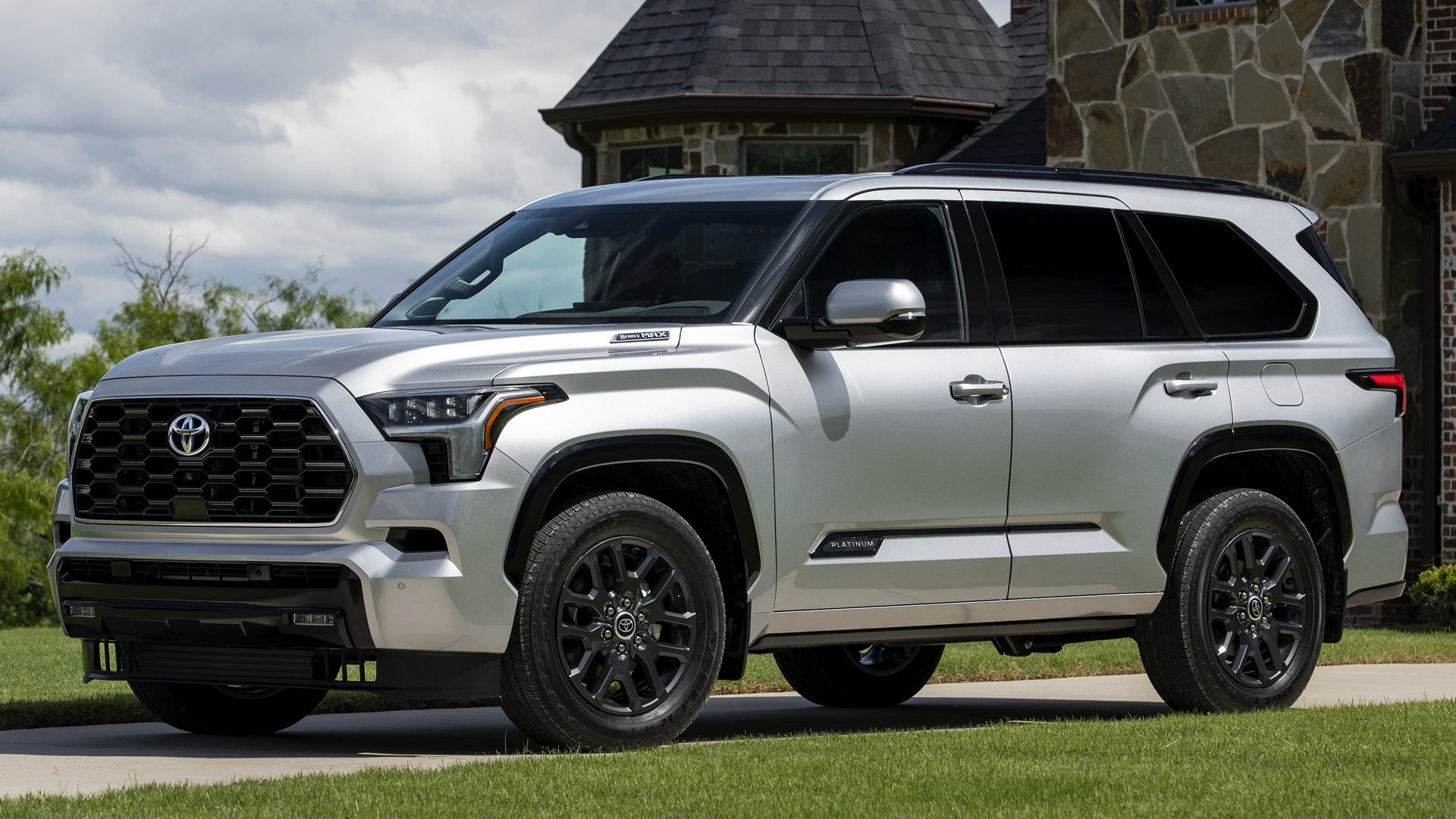Toyota Motor Corporation Sales Data, Trends & Analysis for the U.S Automotive Market
Toyota Motor Corporation is a Japanese multinational automotive manufacturer headquartered in Toyota City, Aichi, Japan. Founded in 1937 by Kiichiro Toyoda, it has become one of the world’s largest automakers. Known for its commitment to quality, durability, and reliability, Toyota has a broad range of vehicles in its portfolio, from compact cars to trucks and commercial vehicles.
Toyota’s core brand offers a wide variety of vehicles, from the compact Corolla to the full-size Tundra pickup truck. The brand is known for producing reliable, fuel-efficient, and affordable cars. Toyota has been a pioneer in hybrid technology, with the Prius being one of the most recognized hybrid cars globally. The company is also working on fully electric and hydrogen fuel cell vehicles, like the Mirai. While Toyota’s main brand is more focused on the general consumer, it also offers some performance-oriented cars like the Supra and luxury SUVs like the Land Cruiser.
Lexus serves as Toyota’s luxury vehicle division, competing with other luxury brands like Mercedes-Benz, BMW, and Audi. Lexus is known for its focus on luxury, quality, and superb customer service. Lexus also offers performance-oriented models like the RC F and GS F, as well as a variety of hybrid options like the RX hybrid. Scion was a brand that was aimed at younger buyers in North America. However, Toyota discontinued the Scion brand in 2016, and some of its models were rebranded as Toyota vehicles. A majority-owned subsidiary, Daihatsu specializes in the production of small cars and ‘kei’ cars, which are a category of small vehicles popular in Japan.
Toyota Motor Corporation U.S Sales Figures & Recent Highlights
Toyota began exporting its vehicles to the United States in 1957, with the introduction of the Toyota Crown. Initially met with skepticism due to its small size and unfamiliar brand name, Toyota worked diligently to establish its presence. It achieved a major breakthrough in the 1970s with the Corolla, which became renowned for its affordability and fuel efficiency—key factors during the oil crisis. Toyota’s luxury brand, Lexus, was introduced in 1989 and has become a significant player in the U.S. luxury car market.
The Toyota Camry and Corolla continue to be among the best-selling cars in America. The RAV4, a compact SUV, has also been a sales leader in its category. Toyota’s Tacoma and Tundra pickup trucks, as well as SUVs like the Highlander and 4Runner, have seen strong sales, benefiting from the American consumer’s preference for larger vehicles. The Prius remains an iconic hybrid vehicle, and Toyota has been expanding its hybrid offerings to other models like the Camry, Corolla, and RAV4. However, the company has been somewhat slow in bringing fully electric models to the market. Toyota’s reputation for producing reliable and durable vehicles continues to be a significant factor in its success.
Lexus competes favorably in the luxury market against European brands like BMW, Mercedes-Benz, and Audi. Models like the RX and ES have been particularly successful. Lexus has been incorporating hybrid technology into many of its models, such as the RX Hybrid and ES Hybrid, providing a fuel-efficient option in the luxury segment.
While Toyota has been a pioneer in hybrid technology, it has been somewhat slow to adopt fully electric vehicles, facing increasing competition from brands that are rapidly expanding their electric offerings. Like many other automakers, Toyota has faced challenges due to supply chain disruptions, particularly semiconductor shortages, which have affected production.
Toyota remains a dominant force in the U.S. automotive market, bolstered by its reputation for quality and reliability. The brand faces challenges in terms of adapting to a market increasingly shifting towards electrification but is making strides with its expanded hybrid lineup and upcoming electric models. Lexus continues to be a strong player in the luxury market, with a focus on quality and customer service.
Toyota Motor Corporation U.S Monthly Sales Data
Below we have a table that shows Toyota Motor Corporation sales for the United States automotive market, but this time it is broken out by month. This is on a unit basis. This is Toyota Motor Corporation’s new vehicle sales in the US across all its owned brands.
Toyota Motor Corporation Annual Sales, Growth & Market Share in the United States
Below we have a table that shows total Toyota Motor Corporation sales volumes for the US automotive market, broken out by year. This data captures all Toyota Motor Corporation sales for the entire United States automotive market, including sub-brands.
Toyota Motor Corporation U.S Annual Sales Units & Growth Chart
Below is a visual representation of Toyota Motor Corporation’s U.S sales units over time. We have both the Toyota Motor Corporation sales units and the growth in the United States market. Click on the items in the legend to see each series by itself.
Toyota Motor Corporation U.S Growth Rate & Market Share Chart
Below is the annual growth rate for the Toyota Motor Corporation in the United States, shown against the Toyota Motor Corporation’s marketshare changes in the United States. This gives you a good look into how the Toyota Motor Corporation has faired against the other brands in terms of absolute sales and effect on marketshare. Click on the items in the legend to see each series by itself.










Toyota Motor Corporation did NOT achieve “2,575,200” U.S. Auto Sales in 2017, as your above table lists.
According to YOUR 2017 Toyota Brand and 2017 Lexus Brand totals-(AKA, 2,129,383 Toyota Brand sales, and 302,132 Lexus Brand sales), the 2017 TOTAL for Toyota Motor Corporation SHOULD BE 2,431,515. That’s a BIG DIFFERENCE.